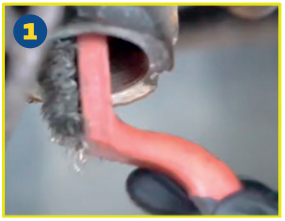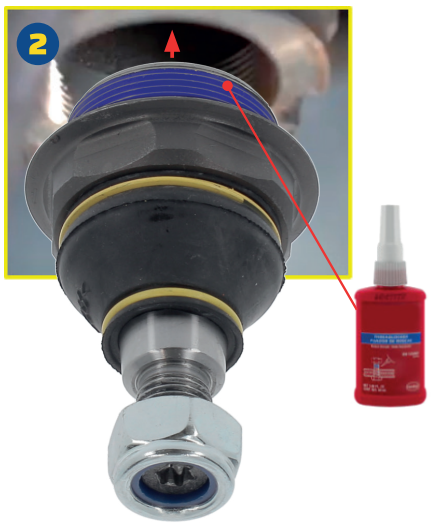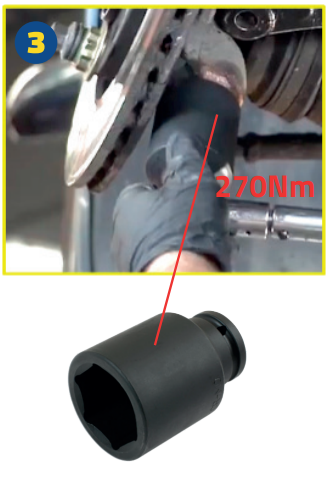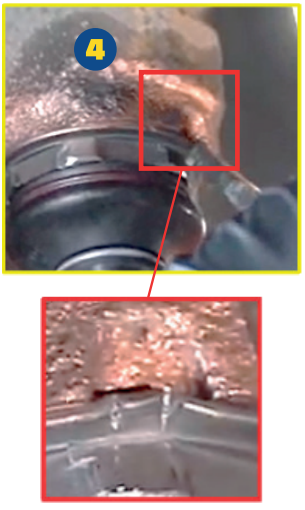DID YOU KNOW: Advice for the professional
MOOG REFERENCE :
CI-BJ-16641
APPLICATIONS :
- CITROËN Jumpy/Spacetourer (04/2016 -->),
- PEUGEOT Expert/Traveller (04/2016 -->),
- OPEL Vivaro/Zafira Life (03/2019 -->),
- TOYOTA Proace (02/2016 -->)
PROBLEM DESCRIPTION
Ball joints of this type have a large collar above the ball joint thread which the installer must ‘punch’ with a flat chisel. This action locks the collar into a locating notch on the wheel knuckle to prevent detachment.
This locking method is a proven solution for many vehicle applications. However, it is still possible for detachment to occur, and instances have been reported both in OE and Aftermarket fitments for the vehicles indicated.
To overcome this issue, MOOG recommends the fitment of CI-BJ-16641 and careful adherence to the following installation steps:

1. Clean the inner thread of the wheel knuckle with a wire brush

2. Apply a thread locking adhesive to the outer thread of the ball joint before manually the ball joint into the wheel knuckle

3. Tighten the ball joint to 270 Nm using a dedicated 44mm socket – deep enough to allow ball pin entrance

4. Using a flat chisel, ‘punch’ the ball joint collar into the dedicated notch located on the wheel knuckle
In many cases, ball joints which are screwed on to the wheel knuckle have no counter nut to prevent accidental detachment. Such detachment can result from normal vibrations when a vehicle is in operation.
Browse more Technical Content and jump start your technical knowledge with Garage Gurus.
The content contained in this article is for entertainment and informational purposes only and should not be used in lieu of seeking professional advice from a certified technician or mechanic. We encourage you to consult with a certified technician or mechanic if you have specific questions or concerns relating to any of the topics covered herein. Under no circumstances will we be liable for any loss or damage caused by your reliance on any content.